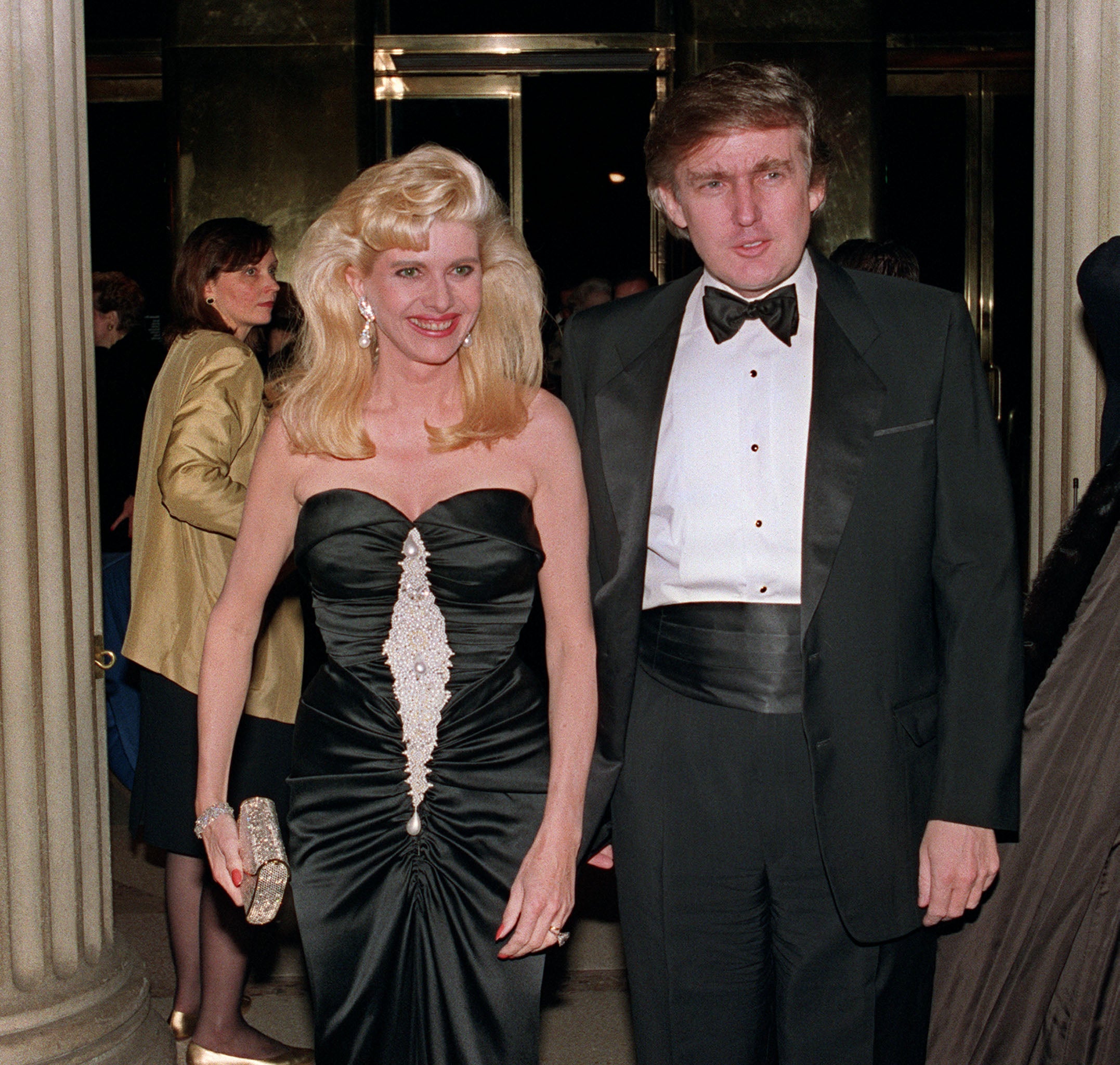Donald Trump's 12 tips for success in business and life
In 'The Art of the Deal', the 1987 memoir he's compared to the Bible, the real estate mogul reveals the secrets to his success

Your support helps us to tell the story
From reproductive rights to climate change to Big Tech, The Independent is on the ground when the story is developing. Whether it's investigating the financials of Elon Musk's pro-Trump PAC or producing our latest documentary, 'The A Word', which shines a light on the American women fighting for reproductive rights, we know how important it is to parse out the facts from the messaging.
At such a critical moment in US history, we need reporters on the ground. Your donation allows us to keep sending journalists to speak to both sides of the story.
The Independent is trusted by Americans across the entire political spectrum. And unlike many other quality news outlets, we choose not to lock Americans out of our reporting and analysis with paywalls. We believe quality journalism should be available to everyone, paid for by those who can afford it.
Your support makes all the difference.After a hiccup in Iowa, Donald Trump looks to be back on course for the Republican nomination.
Having recovered with a big win in New Hampshire last week, Trump leads big in polls ahead of next week's South Carolina primary.
Betting markets now think it's about 50:50 whether he or someone else will win. And he ranks second to Clinton as America's most likely President.
How did he do it? Thankfully, he left a paper trail. His 1987 memoir, The Art of the Deal, offers a dozen pieces of priceless life advice. Here are Donald's Commandments.
1. Find your art form
“I don’t do it for the money. I’ve got enough, much more than I’ll ever need. I do it to do it. Deals are my art form. Other people paint beautifully on canvas or write wonderful poetry. I like making deals, preferably big deals. That’s how I get my kicks.
2. But forget business if you’re no natural
“Deal-making is an ability you’re born with. It’s in the genes. It’s not about being brilliant. It does take a certain intelligence, but mostly it’s about instincts. You can take the smartest kid… the one who gets straight A’s and has a 170 IQ, and if he doesn’t have the instincts, he’ll never be a successful entrepreneur.”
3. Aim high
“My style of deal-making is simple. I aim very high, and then I just keep pushing and pushing and pushing to get what I’m after.”
“To me it’s very simple: if you’re going to be thinking anyway, you might as well think big. Most people think small, because they’re afraid of success, afraid of making decisions, afraid of winning.”
4. Be obsessive
“One of the keys to thinking big is total focus. I think of it almost as a controlled neurosis, a quality I’ve noticed in many highly successful entrepreneurs. They’re obsessive, driven and almost maniacal, but it’s all channeled into their work.”
“I don’t say this trait leads to a happier life, or a better life, but it’s great when it comes to getting what you want.”
5. ‘Play it loose’
“Most people are surprised by the way I work. I don’t carry a briefcase. I try not to schedule too many meetings. I leave my door open. You can’t be imaginative or entrepreneurial if you’ve got too much structure. I prefer to come to work each day and just see what develops. There is no typical week in my life.”

6. Ditch long meetings and get dialling
“I usually arrive at my office by nine, and I get on the phone. There’s rarely a day with fewer than fifty calls, and often it runs to over a hundred. In between, I have at least a dozen meetings, but the majority occur on the spur of the moment, and few of them last longer than fifteen minutes.”
7. If you gamble, be able to live with losing
“People think I’m a gambler. I’ve never gambled in my life. To me, a gambler is someone who plays slot machines. I prefer to own slot machines. I happen to be very conservative in business. I always go into the deal anticipating the worst. If you can live with the worst, the good will always take care of itself.”
8. Trust your instinct, not numbers
“I don’t hire a lot of number-crunchers, and I don’t trust fancy marketing surveys. I do my own surveys and draw my own conclusions. When I’m in another city and I take a cab, I’ll always make a point to ask the cabdriver questions. I ask and I ask and I ask, until I begin to get a gut feeling.”
“The greatest of consulting firms charge you $100,000 for a lengthy study and in the end it has no conclusion and takes so long to complete that if the deal you were considering was a good one, it will be long gone.”
9. Use your leverage
“The worst thing you can possibly do in a deal is seem desperate to make it. That makes the other guy smell blood, and then you’re dead. The best thing you can do is deal from strength.
“Leverage is having something the other guy wants. Or better yet, needs. Or best of all, simply can’t do without. Unfortunately, this isn’t always the case, which is why leverage often requires imagination and salesmanship.”
10. Don’t be bullied
“Much as it pays to emphasise the positive, there are times when the only choice is confrontation. I’m very good to people who are good to me. But when people treat me badly or try to take advantage of me, my general attitude has been to fight back very hard.”
“The risk is you’ll make a bad situation worse, but my experience is that if you’re fighting for something you believe in – even if it means alienating some people along the way – things usually work out for the best.”
11. Get noticed
“You can have the most wonderful product in the world, but if people don’t know about it, it’s not going to be worth much. You need to generate interest and create excitement.”
“The press is always hungry for a good story, and the more sensational the better. It’s in the nature of the job. If you are a little different, or a little outrageous, or if you do things that are bold or controversial, the press is going to write about you.”
12. Have fun
“If it can’t be fun, what’s the point? Life is very fragile, and success doesn’t change that. If anything, success makes it more fragile. Anything can change, without warning, and that’s why I try not to take any of what’s happened too seriously.”
“I don’t spend a lot of time worrying about what I should have done differently, or what’s going to happen next. What do my deals add up to? I’m not sure, except that I’ve had a very good time making them.”
Join our commenting forum
Join thought-provoking conversations, follow other Independent readers and see their replies
Comments